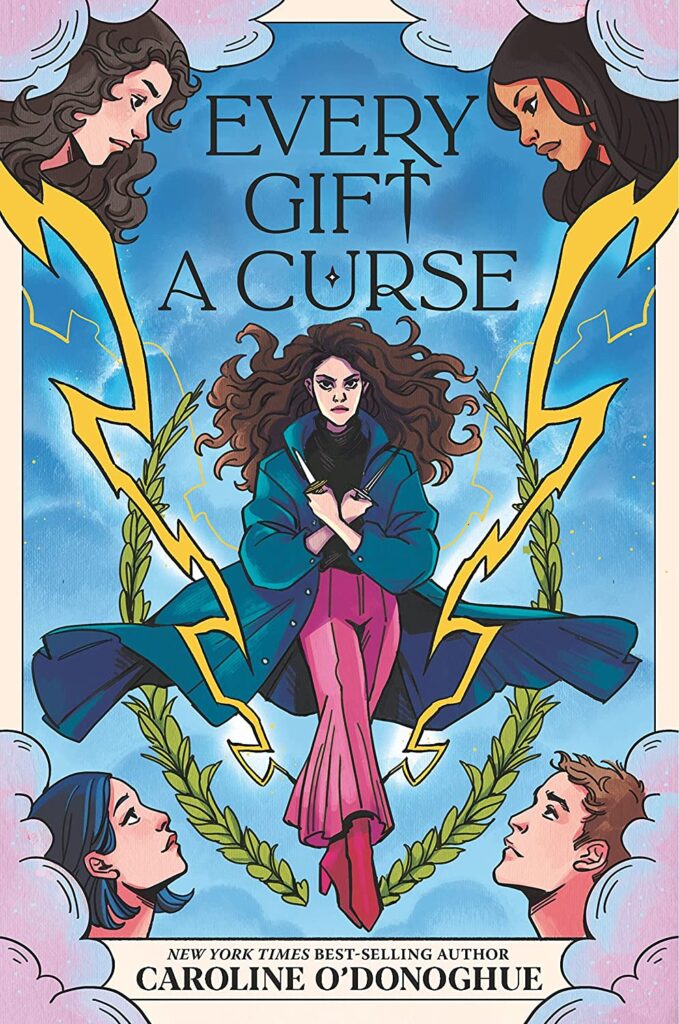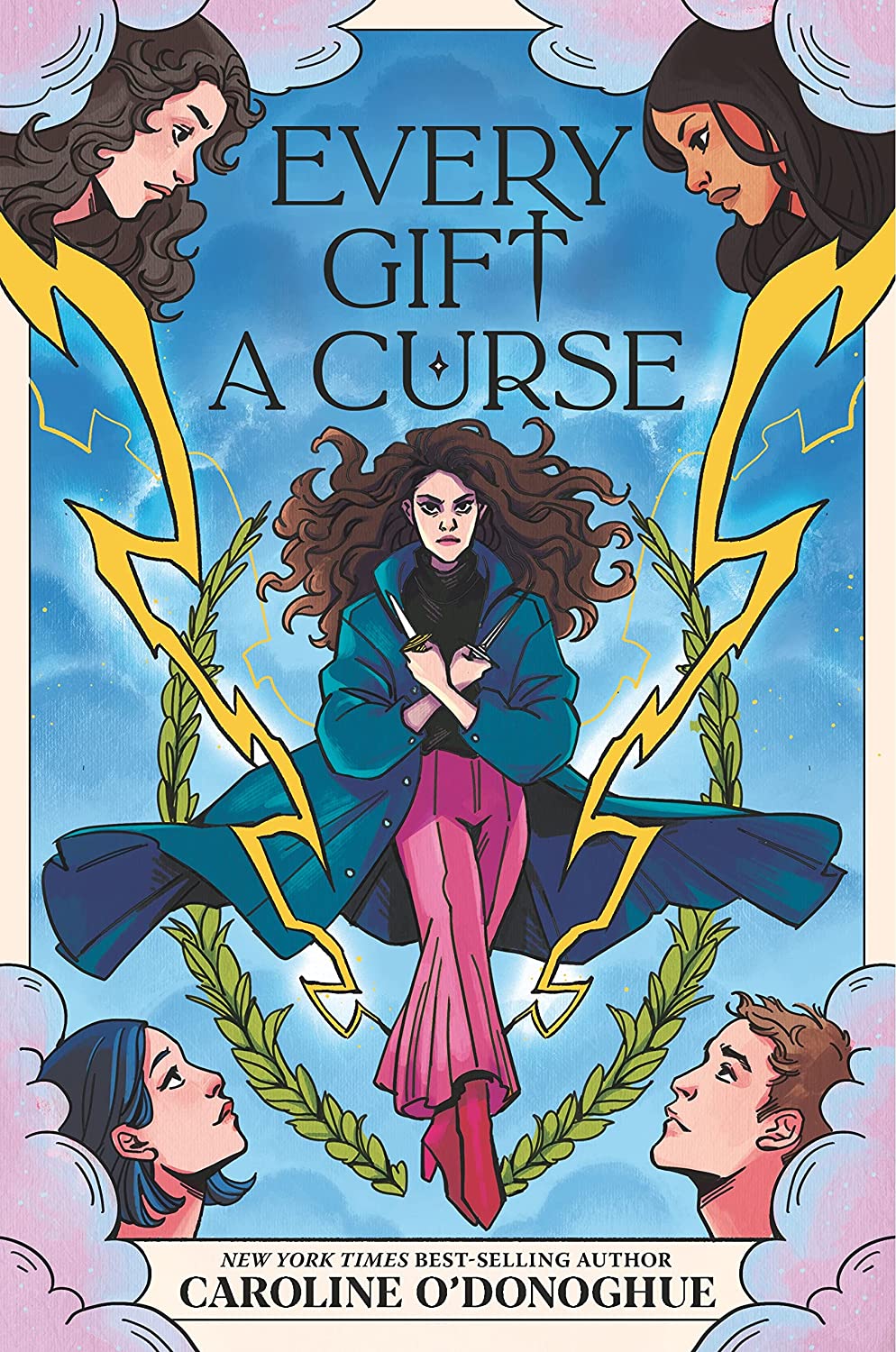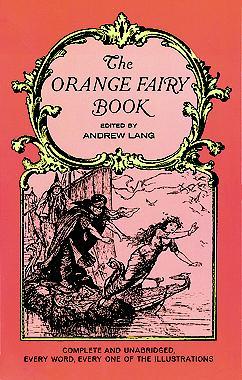 In Every Gift a Curse, Caroline O’Donoghue concludes the trilogy that began with All Our Hidden Gifts and The Gifts That Bind Us. At the end of the previous book, Maeve and the gang successfully sealed Kilbeg’s well, preventing the Children of Brigid cult from draining it. Their success, however, came at a price: their school burned down, costing their headmistress her life, and a member of the Children was also killed, leaving our heroes vulnerable to the Housekeeper’s vengeance.
In Every Gift a Curse, Caroline O’Donoghue concludes the trilogy that began with All Our Hidden Gifts and The Gifts That Bind Us. At the end of the previous book, Maeve and the gang successfully sealed Kilbeg’s well, preventing the Children of Brigid cult from draining it. Their success, however, came at a price: their school burned down, costing their headmistress her life, and a member of the Children was also killed, leaving our heroes vulnerable to the Housekeeper’s vengeance.
When Every Gift a Curse begins, the group is on edge. It’s been a month since the Children’s leader, Dorey, pledged to summon the Housekeeper against them. (If you need a refresher, the Housekeeper is a kind of revenge spirit summoned through the use of tarot cards.) Yet so far, she’s failed to appear, leaving them in anxious suspense. Aaron, who only recently deserted the cult to join Maeve and her friends, has also disappeared.
Though their magical lives are in shambles, things in the “normal” world are going pretty well. Roe’s band is getting noticed in a big way, and Fiona’s being scouted for a Netflix show about teen witches. Lily’s finally becoming comfortable again in her human skin, and Maeve is coping with it all surprisingly well (considering the insecurities that caused so much tension in the last book).
But of course, it can’t last. Teenagers are going missing from all around Kilbeg, and it’s clear that the Children of Brigid haven’t given up – they’ve just changed tactics. To fight back and save her peers, Maeve must delve deep into Housekeeper lore… and she may not like all that she discovers.
Fans of the series won’t be disappointed in the final installment. In fact, there’s almost no need to write a review. O’Donoghue’s development of the world and her characters remains strong and feels consistent with the earlier books. Feminist values and inclusivity remain at the forefront of the story, which is also thoughtful about local history, culture, and what it means to be from a small town in the 21st century. The storytelling remains as vibrant as ever, and this feels like a fitting send-off for the characters we’ve come to love.
I was a little conflicted over the ending. I can’t reveal much about why without spoiling the book – which I don’t want to do, because there are aspects of the final pages which are so right for the story, and feature really cool magic to boot. On the one hand, the characters’ fates feel appropriate; what happens is in keeping with how we’ve learned that magic works and with O’Donoghue’s investment in recognizing the importance of seeking justice where we are, rather than writing off the local in favor of the larger world. On the other hand, the ending feels limiting, restricting future possibilities in a way that I (a millennial) think could turn toxic years down the line.
Then again, the idea of sacrifice is crucial to the novel’s resolution, and my conflicted feelings are probably evidence that O’Donoghue has plotted her story in expert fashion. For the magic to work, you have to give up something you really want, and you have to keep believing that it’s going to be worth it.
A copy of this book was provided by the publisher, Candlewick Press, for review.



